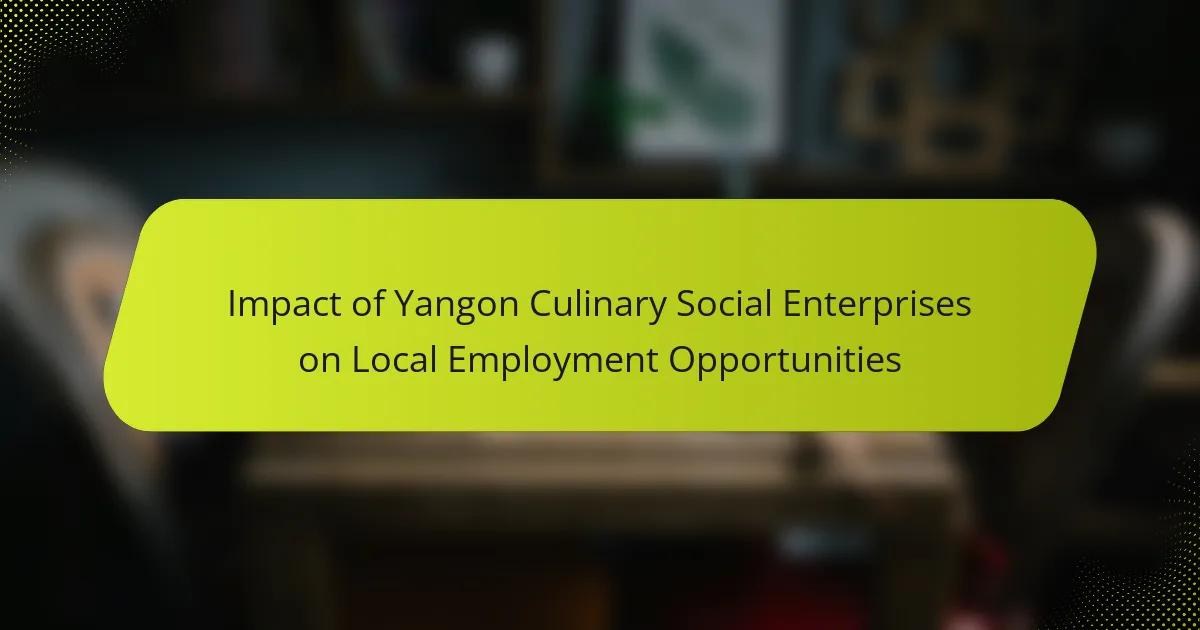Yangon Culinary Social Enterprises are organizations that integrate food services with social objectives, primarily targeting local issues such as poverty and unemployment. These enterprises focus on creating job opportunities and providing training for marginalized groups while promoting sustainable practices and community engagement. The article highlights their significant impact on local employment, noting the creation of […]
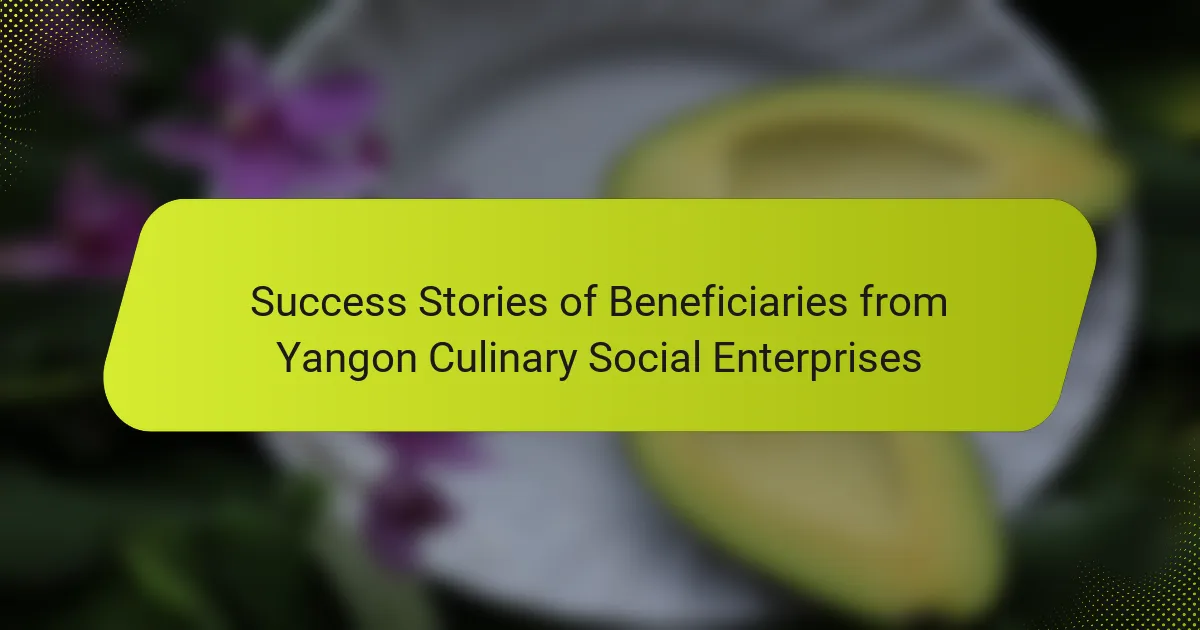
Success Stories of Beneficiaries from Yangon Culinary Social Enterprises
The article focuses on the success stories of beneficiaries from Yangon culinary social enterprises, highlighting the transformative impact these initiatives have on individuals and communities. It showcases various beneficiaries, including a young woman who became a chef and a group of marginalized individuals who launched a catering business. The article emphasizes the training and resources […]
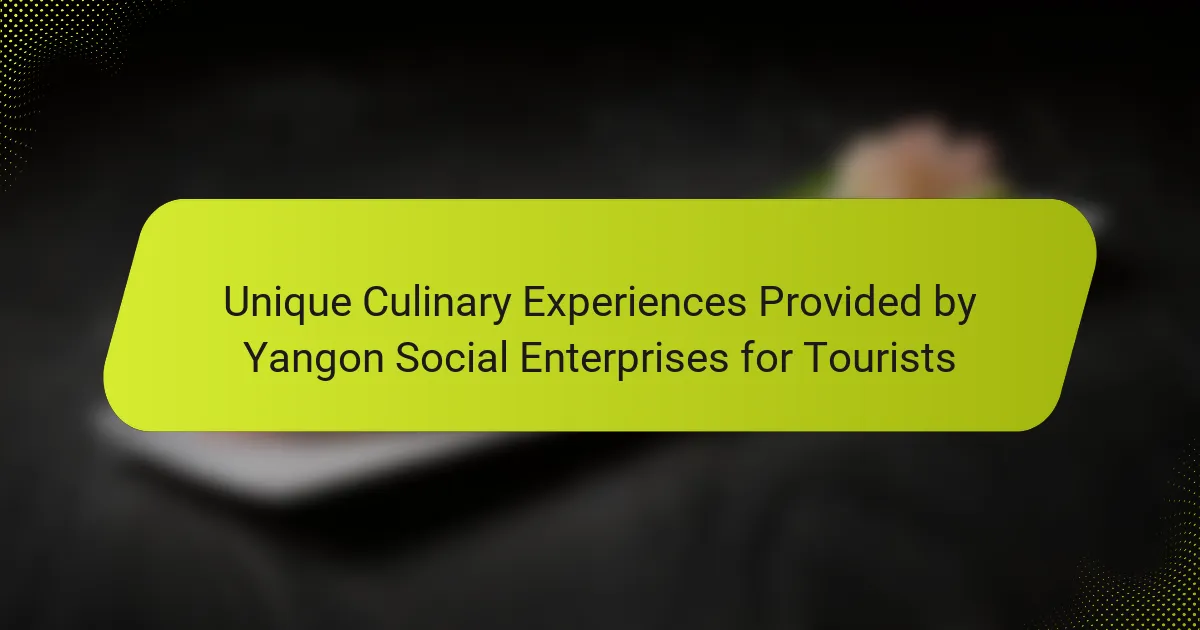
Unique Culinary Experiences Provided by Yangon Social Enterprises for Tourists
Yangon social enterprises provide tourists with unique culinary experiences that showcase traditional Burmese culture and support community initiatives. These experiences include cooking classes featuring local dishes, street food tours, and dining in local homes, all of which emphasize sustainable practices and the use of locally sourced ingredients. Participants gain hands-on skills in preparing authentic cuisine […]
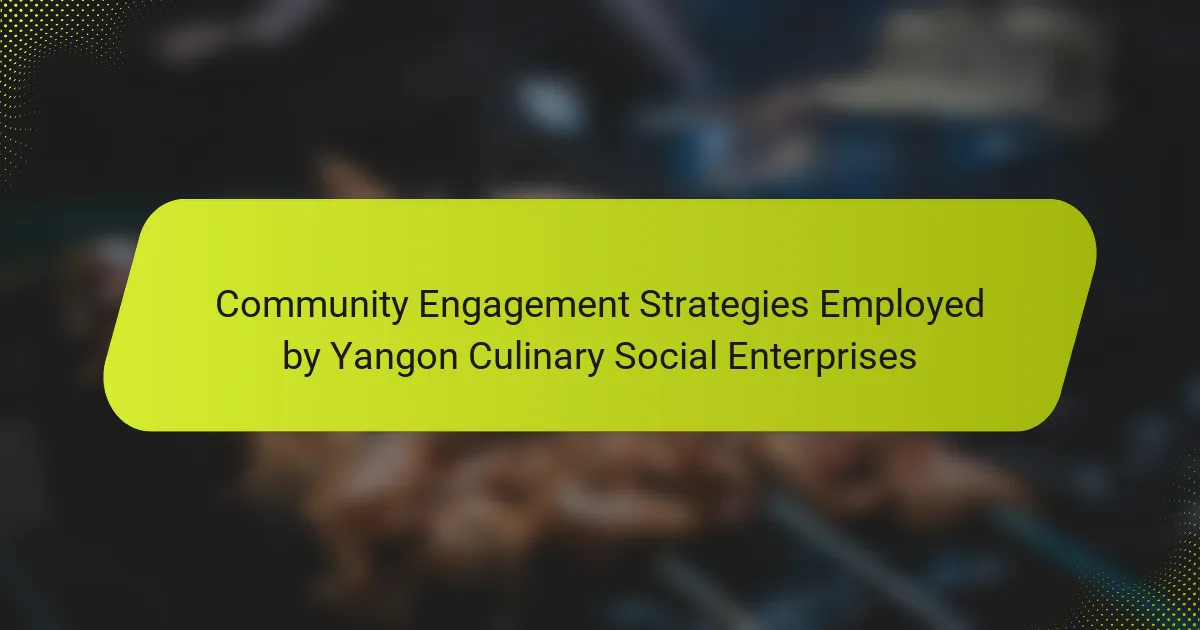
Community Engagement Strategies Employed by Yangon Culinary Social Enterprises
Community engagement strategies in Yangon culinary social enterprises are designed to strengthen relationships with local communities. These strategies encompass organizing cooking classes to impart culinary skills, sourcing ingredients from local farmers to bolster the economy, and hosting community events that foster cultural exchange. Collaborations with local NGOs enhance outreach and effectiveness, while surveys and feedback […]
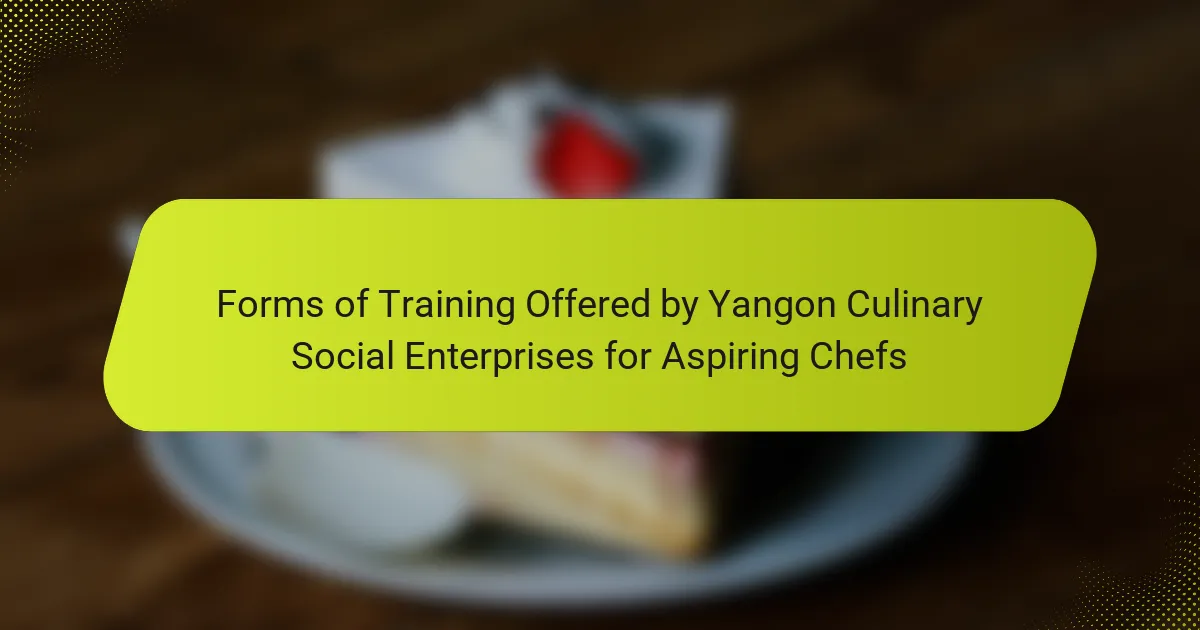
Forms of Training Offered by Yangon Culinary Social Enterprises for Aspiring Chefs
Yangon culinary social enterprises provide diverse training programs for aspiring chefs, focusing on local cuisine and sustainable practices. These programs include hands-on cooking classes, skill-specific workshops, internships, mentorship opportunities, and online courses. Participants engage with local farmers and suppliers, emphasizing community involvement and cultural heritage. The training also covers essential business skills, food safety, and […]
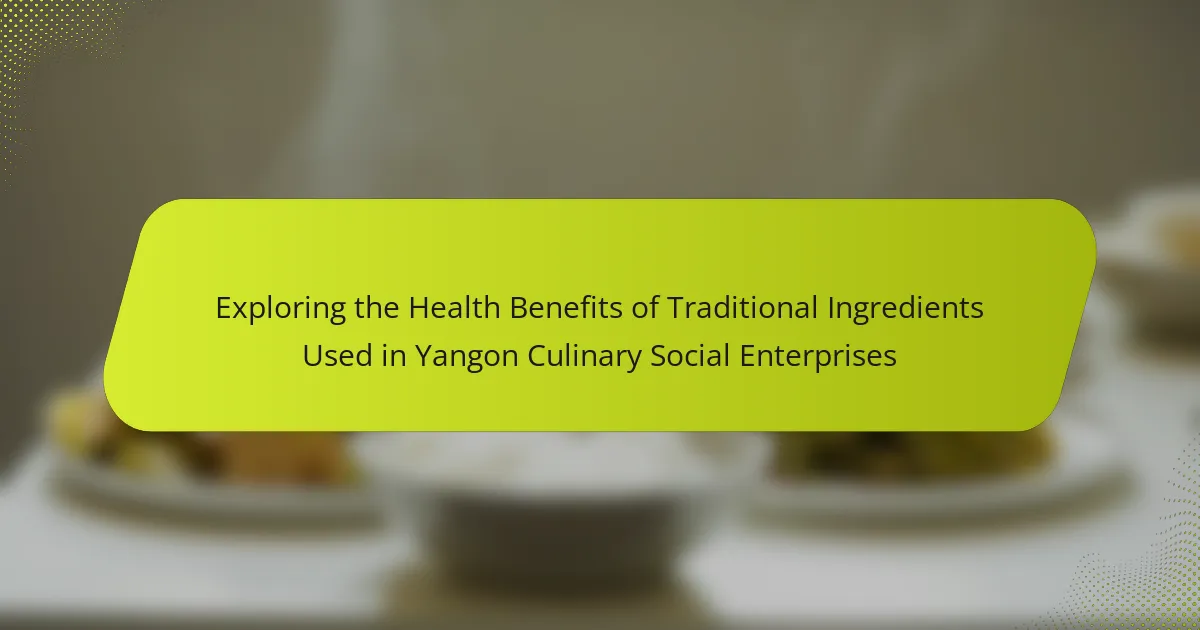
Exploring the Health Benefits of Traditional Ingredients Used in Yangon Culinary Social Enterprises
The article explores the health benefits of traditional ingredients used in Yangon culinary social enterprises, focusing on staple foods such as rice, fish, and various vegetables. These ingredients not only serve as the foundation for nutritious meals but also reflect the region’s agricultural practices and cultural heritage. The article highlights how these enterprises promote health […]
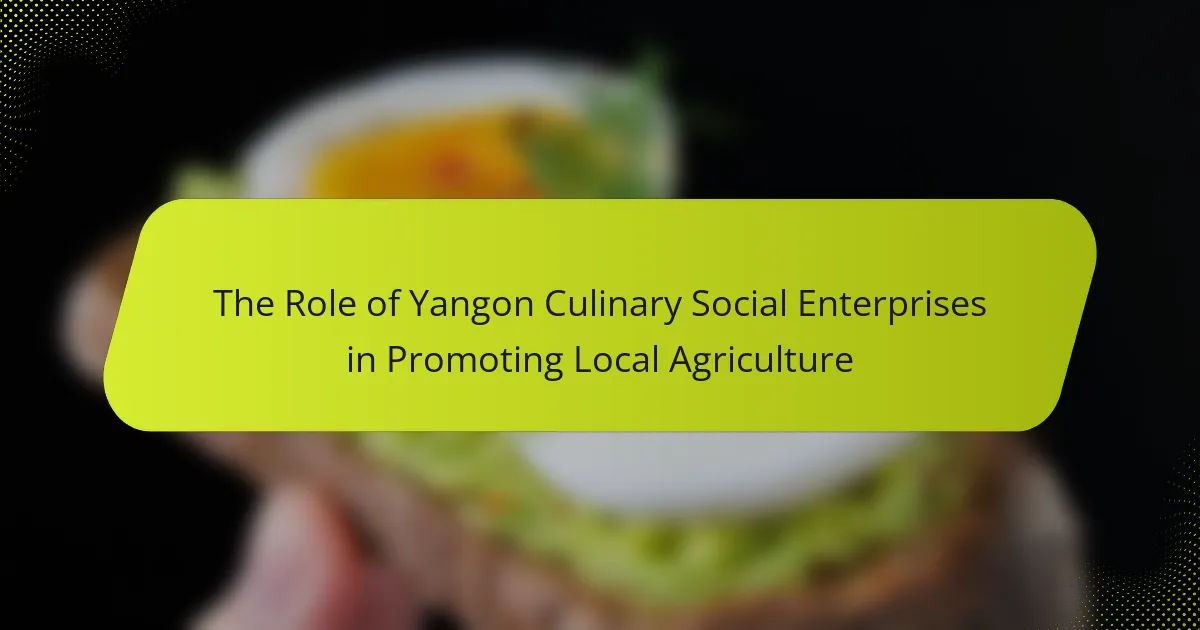
The Role of Yangon Culinary Social Enterprises in Promoting Local Agriculture
Yangon Culinary Social Enterprises are organizations that integrate culinary practices with social missions to address social issues while promoting local food culture. These enterprises support local farmers by sourcing ingredients directly from them, enhancing the local economy and encouraging sustainable agriculture. They provide training and employment opportunities to marginalized communities, aiming to improve food security […]
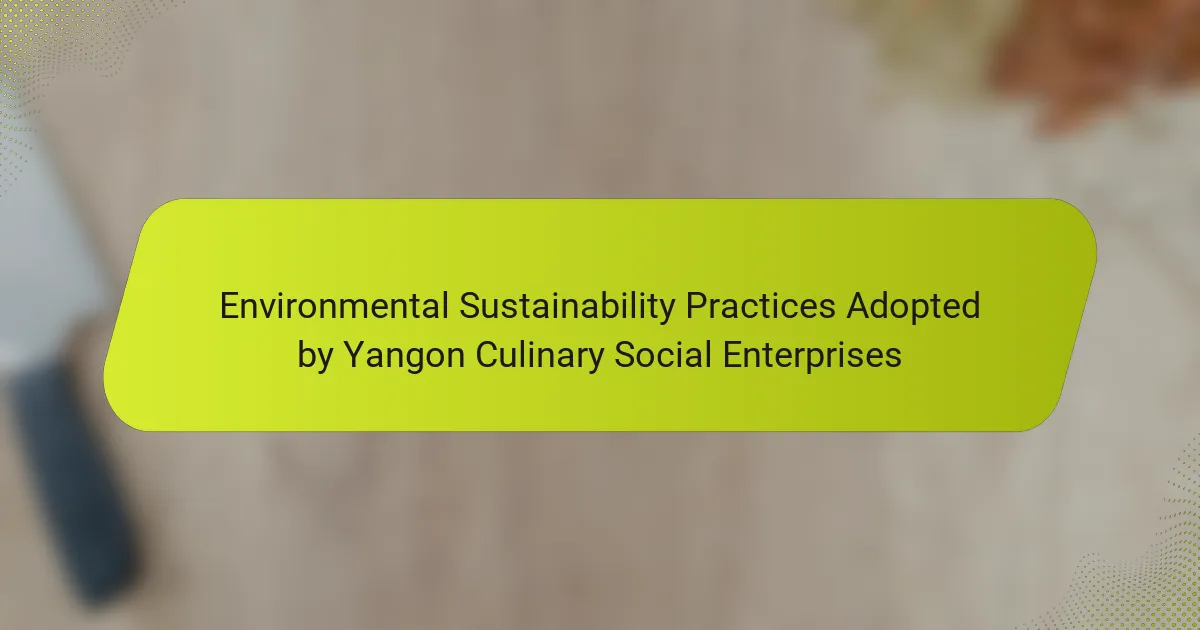
Environmental Sustainability Practices Adopted by Yangon Culinary Social Enterprises
Culinary social enterprises in Yangon are increasingly adopting environmental sustainability practices to address ecological concerns. These practices include sourcing local ingredients, implementing waste management systems, utilizing biodegradable packaging, and employing water conservation techniques. Despite facing challenges such as limited funding, consumer awareness, inconsistent supply chains, and regulatory barriers, many enterprises have achieved notable successes. Examples […]
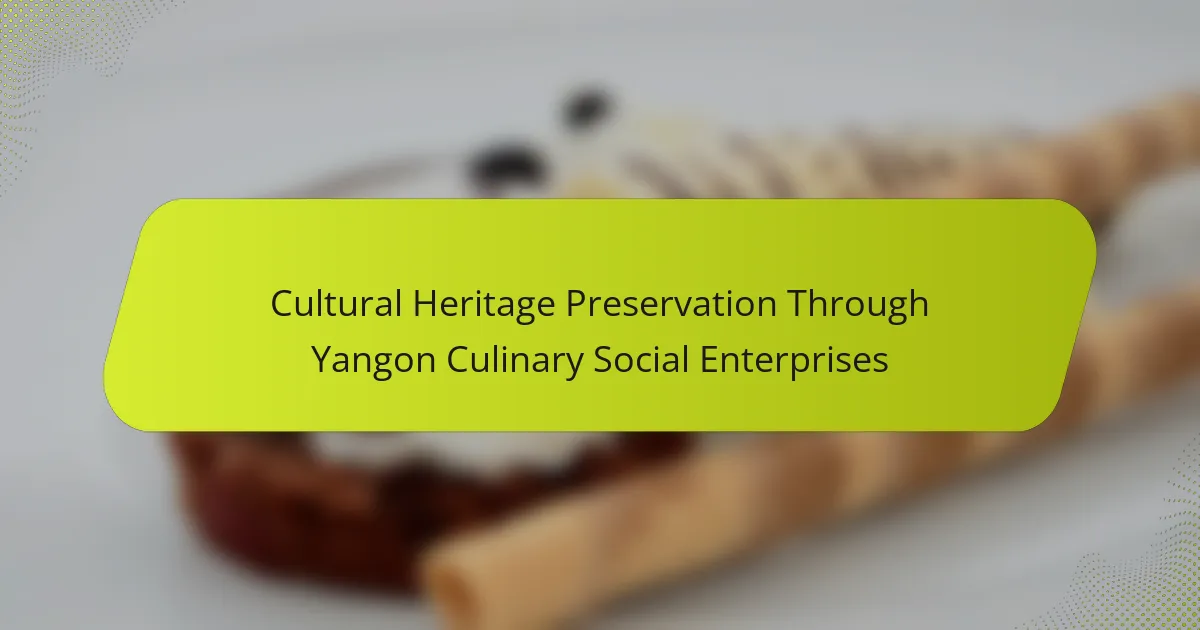
Cultural Heritage Preservation Through Yangon Culinary Social Enterprises
Cultural heritage preservation in Yangon is primarily facilitated through culinary social enterprises that focus on maintaining and promoting traditional food practices. These enterprises utilize local ingredients and recipes that embody Myanmar’s rich and diverse cultural history, engaging local communities to pass down culinary skills across generations. By providing cooking classes and food tours, they educate […]
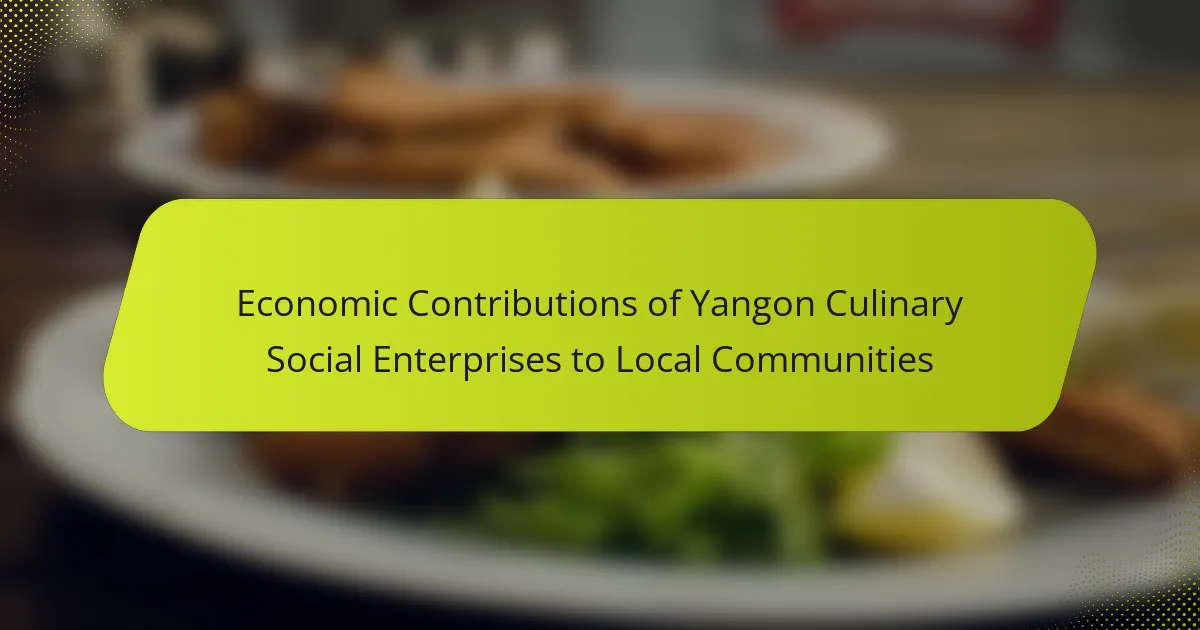
Economic Contributions of Yangon Culinary Social Enterprises to Local Communities
Yangon culinary social enterprises are crucial entities in the local economy, creating job opportunities and supporting local agriculture by sourcing ingredients from nearby farmers. These enterprises enhance community engagement and promote cultural heritage, while reinvesting profits into community development projects to foster economic growth and improve living standards. Despite their positive impact, they face challenges […]
